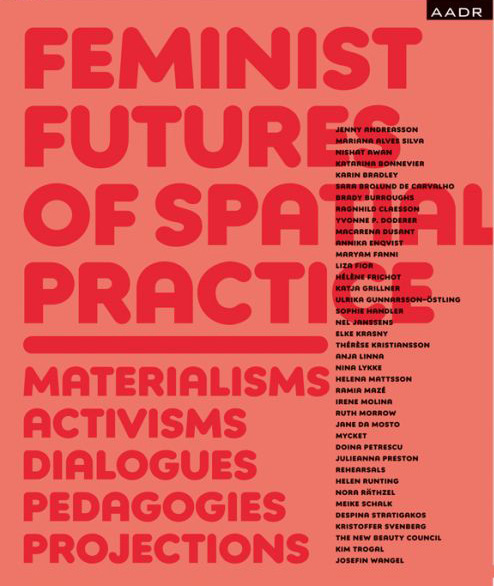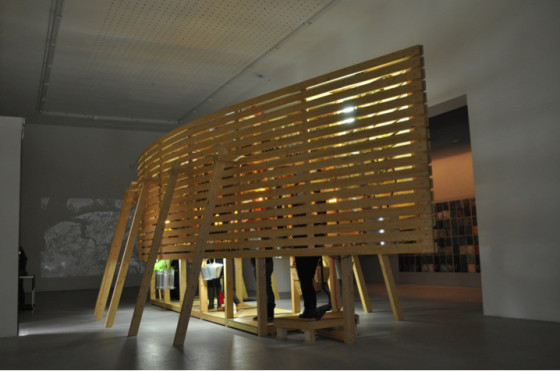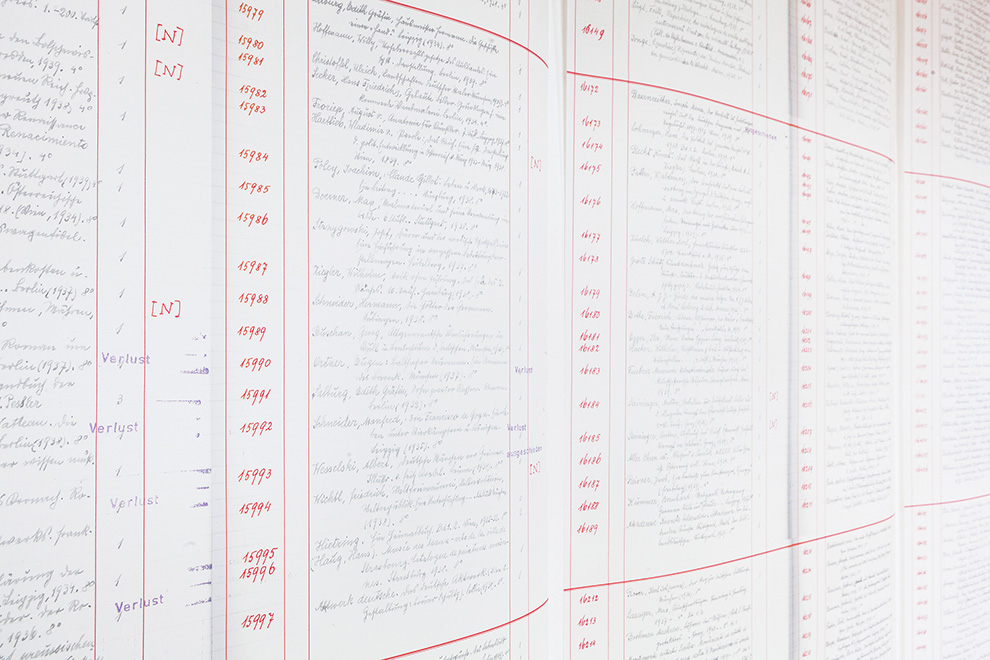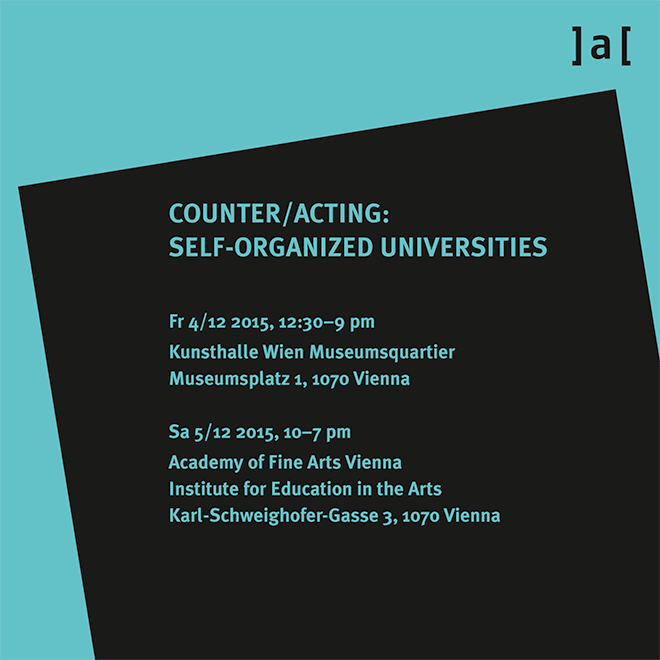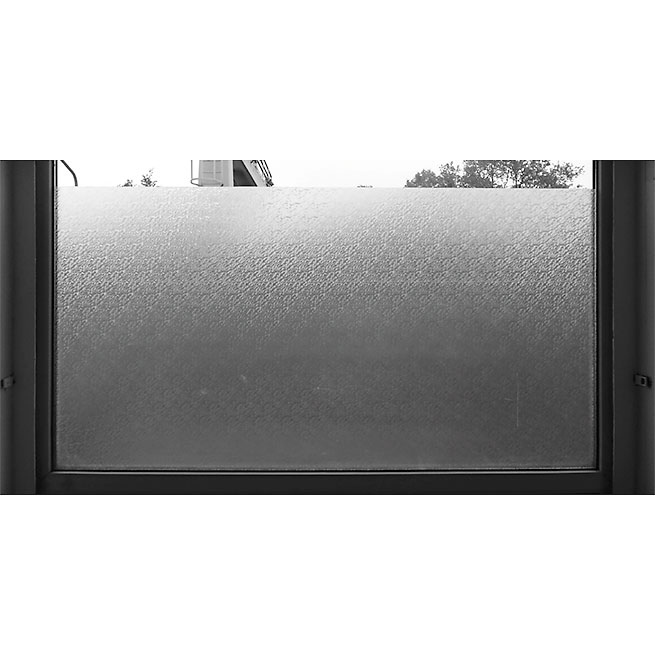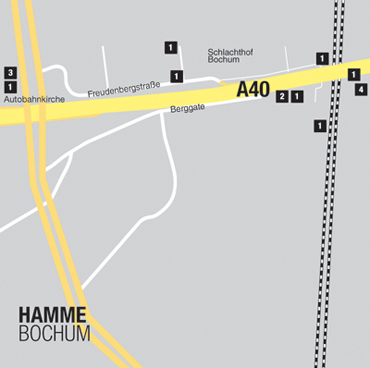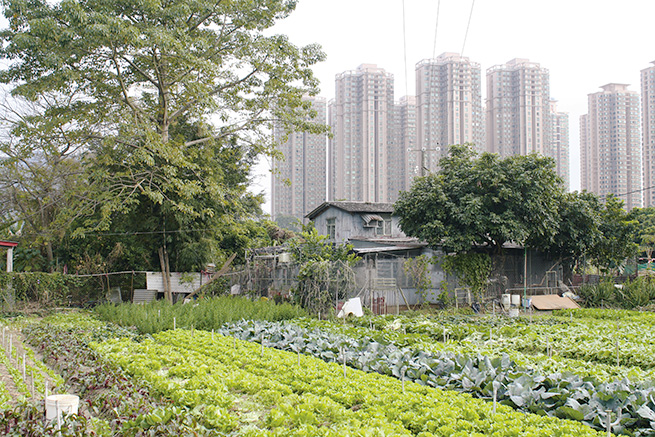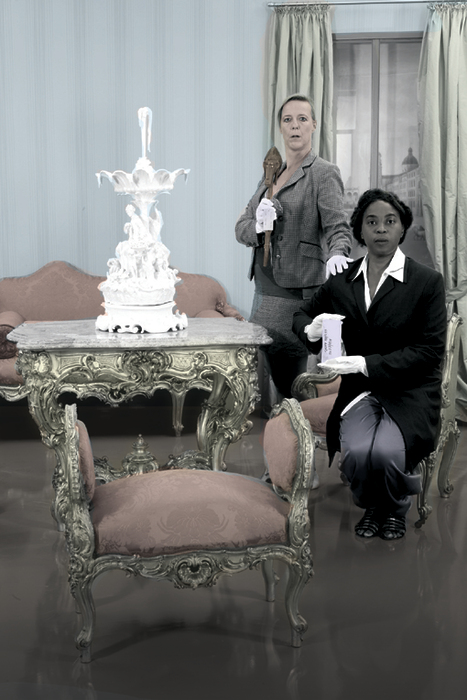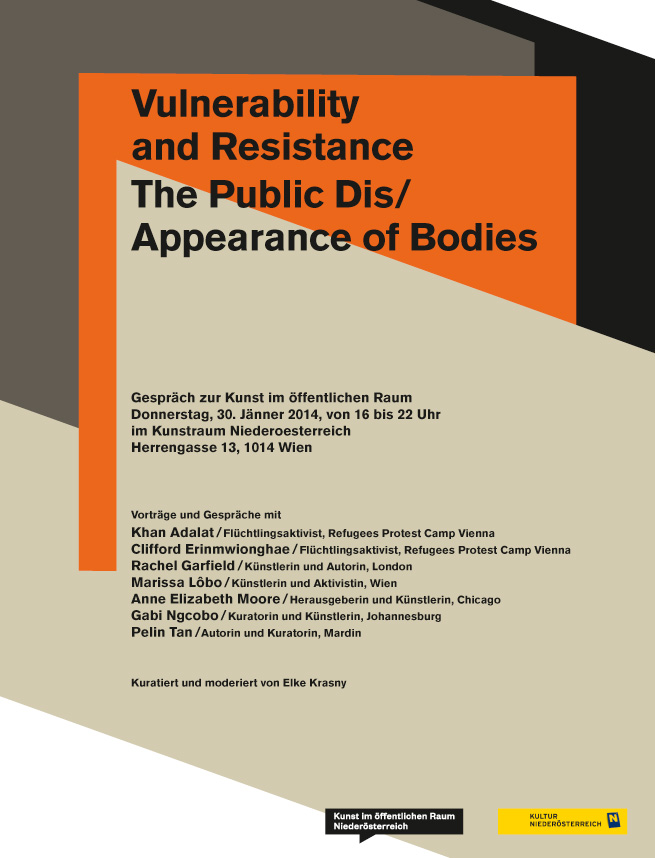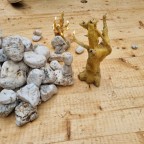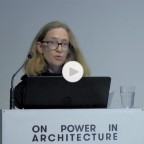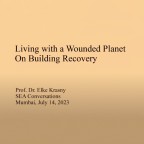Time | April 17–18, 2015
Venue | Akademie der bildenden Künste Wien, Atelierhaus, Lehargasse 8, 1060 Wien, 2. OG Mehrzwecksaal, und Mobiles Stadtlabor, (TU Wien, Resselpark/Karlsplatz,1040 Vienna)
PhD Symposium, organized by Prof. Elke Krasny, Ass. Prof. Sabine Knierbein and Prof. Rob Shields.
A politics of care needs to be situated between bodies, place and matter. These come together both as elements of public and political life in cities and as as the subjects of research, knowledge production, and scientific inquiry.
This conference aims to take up the complexities of public life and a new politics of care and concern situated in the commonalities, connectivities, and nuanced spatialities between bodies, place, and matter. Three panels “Bodies. Place. Matter” examine public life and the spatialisations of care and concern from the perspectives of urban, design and cultural disciplines. A common politics of care addresses the entanglement of infrastructures, resources, and affects, alignments, contradictions, and conflicts, labour, work, and pleasure, distribution and access, local site-specificity and a globalized production of space. If public space is indeed a critical part of public life or the embodied geographies of the public sphere, then we need to rethink its inherent potentials between everyday life practices and the production and critical reflection of scientific insights/knowing.
As a joint project between the Interdisciplinary Centre for Urban Culture and Public Space (http://skuor.tuwien.ac.at), Vienna University of Technology, Austria – where all three organizers worked together within the frame of the City of Vienna Visiting Professorship Programme 2014 – the Academy of Fine Arts Vienna, Austria and Space and Culture, University of Alberta, Canada, a PhD Symposium will take place on 17th/18th April 2015. The conference seeks to bring together activism, contemporary art, research, critical spatial practice well as urban theory, design and planning to reflect and discuss issues of public life and a spatial politics of care.
Panel 1 – Bodies
The panel is less about what bodies are, but rather about how bodies act, what bodies can do, what bodies must do. Bodies are subjects. Bodies are subjected. Bodies produce. Bodies reproduce. Bodies depend. Bodies resist. Bodies are vulnerable. Bodies put themselves on the line. Bodies matter. Bodies support. Bodies care. The panel seeks to examine the implications and reverberations of austerity, globalization, rapid transformations, economic downturn, precarity, in/difference, in/justice, re/production, and re/distribution with regards to the spatialised implications of bodies co-producing public life and bodies co-dependent in a politics of care. The panel is dedicated to seeking new alignments, critical links, and productive transgressions between emergent practices, theories, and histories addressing bodies in public life and a politics of care. The panel welcomes contributions questioning, unpacking, and critiquing these complexities with a particular focus on feminist spatial agency in contemporary art, curating, urban research, and urban design, as well as the history and theory linking and transgressing these fields.
Keynote Lecture: Kim Trogal, Visiting Design Fellow, School of Architecture, University of Sheffield, Britain
Discussant: Julia Wieger (tbc), Academy of Fine Arts Vienna, Austria
Panel Introduction, Moderation and Rapporteur: Prof. Mag. Elke Krasny, Professor for Arts and Communication, Academy of Fine Arts Vienna, and City of Vienna Visiting Professor 2014 (winter term), Interdisciplinary Centre for Urban Culture and Public Space, Vienna University of Technology, Austria, Contact: elke.krasny@gmail.com
Panel 2 – Place
The debate around abstract spaces of capitalism and how they been mediated through planning and design professions and practice has been taken up again critically, both from relational perspectives on public space and from anthropological approaches to embodied spaces. This session is dedicated to unravel new urban planning, design and urban studies approaches addressing relational geographies and politics of care in these fields. Potential contributions to this panel might address issues of bodily experience and action, as well as relational pedagogies or curricular innovations to enhance education and reorganize elites through critical practice, action and reflection in and on public space. It welcomes contributions that seek to differentiate and qualify contemporary debates on the (re)emergence of collective interests, urban cultures and public claims, and strengthens a reading of forms of embodied resistance and protest as intervention and alteration in current modes of production of space and place.
Keynote Lecture: Prof. Dr. Kirsten Simonsen, Professor in Social and Cultural Geography, Department of Environmental, Social and Spatial Change (ENSPAC), Roskilde University, Denmark
Discussant: Dr. Sandra Huning, Centre for Urban and Regional Sociology, TU Dortmund, Germany
Contact: Ass. Prof. Dr. Sabine Knierbein, Interdisciplinary Centre for Urban Culture and Public Space, Vienna University of Technology, knierbein@skuor.tuwien.ac.at
Panel 3 – Matter
Paradoxically, in a more globalized world where communication technologies have made interaction less dependent on bodies in a shared location, where the ‘spaces of concern’ lie either at planetary scales too large to grasp or nanotechnologies dissolve our faith in the solidity of matter, the materiality of bodies, trees and animals is still prominent. Concrete materiality anchors media and political concerns as the infrastructure of care and concern. Political force appears dependent on bodies occupying public places. Yet ‘what matters’ is only recognized within a context or ‘space of concern’ in which it takes on meaning. How are the empirical elements of cities, the bricks of public spaces and the flesh of bodies taken up through practices to become the pivots of ethical and political spatialisations of care and concern?
Keynote: Prof. Dr. Sha XinWei, Professor and Director, School of Arts, Media and Engineering, Synthesis Center, Arizona State University, Phoenix, USA
Discussant: DI Ian Banerjee, Centre of Sociology, Vienna University of Technology, Austria
Contact: Prof. Dr. Rob Shields, Henry Marshall Tory Endowed Research Chair and Professor of Sociology, City-Region Studies Centre, Faculty of Extension, University of Alberta Edmonton, Canada and City of Vienna Visiting Professor 2014 (summer term) Interdisciplinary Centre for Urban Culture and Public Space, Vienna University of Technology, rshields@ualberta.ca
Friday, April 17, 2015
Venue: Studio Building of the Academy of Fine Arts Vienna, Mehrzwecksaal, 2nd floor, Lehargasse 8, 1060, Wien
9:00 Arrival and Registration
9:30 Opening
Panel I – Bodies (Elke Krasny)
Discussant: Julia Wieger (tbc)
10.00 Bodies – Introduction (Elke Krasny)
10.10 Keynote Speech (Kim Trogal)
10:40 Panel Presentations
Architecture for and by women (Maria Bostenaru Dan, University of Bucharest, Romania
Art, Resistance and Protest: The Case of “Salvem El Cabanyal”, Valencia, Spain (Matilde Igual, University of Applied Arts Vienna, Austria)
Tale of a Rooftop (Nafiseh Mousavian, ENSA Paris La-Villette, France)
12:00 Discussant Feedback (Julia Wieger)
12:10 General Debate (Elke Krasny)
12:30 Lunch break
Panel II – Place (Sabine Knierbein)
Discussant: Sandra Huning
14:00 Place – Introduction (Sabine Knierbein)
14:10 Keynote Speech Kirsten Simonsen
14:40 Coffee break
15:10 Panel Presentations
From Bodies of Political Space to Bodies as Space of Politics: Women in Turkey in “Eclipse of Reason” (Burcu Ates, Middle East Technical University, Turkey)
Children in open public space. A case study from Banjaluka (Dajana Rokvić, Bosnia and Herzegowina)
Borderline Places. New Urban University Campus Life and urban peripheries in Turkey (Ali Kemal Termelez, Ozyegin University and İstanbul Kultur University, Istanbul, Turkey)
16:30 Discussant Feedback (Sandra Huning)
16:40 General Debate (Sabine Knierbein)
17:00 Break
18:00 Evening Event
Saturday, April 18, 2015
Venue: Studio Building of the Academy of Fine Arts Vienna, Multi-Purpose Space (Mehrzweckhalle), 2nd floor, Lehargasse 8, 1060, Wien
Panel III – Matter (Rob Shields)
Discussant: Ian Banerjee
9:00 Matter – Introduction (Rob Shields)
9:20 Keynote Speech (Sha XinWei)
9.50 Panel Presentations
The changing role of the public sector in spatial planning (Grazia Bonvissuto, Vienna University of Technology, Austria)
Benevolence (Ekaterina Timina, Vienna University of Technology, Austria)
Who cares after Red Vienna? Appropriating the city’s places of concern (Tihomir Viderman, Vienna University of Technology, Austria)
11:30 Discussant Feedback (Ian Banerjee)
11:40 General debate (Rob Shields)
12:00 Lunch break
13:30 Networking and Exchange Workshop
15:00 Coffee Break
15:30-16:30 Rapporteurs’ Summary
Panel 1 Bodies (Elke Krasny)
Panel 2 Place (Sabine Knierbein)
Panel 3 Matter (Rob Shields)
Place: Mobiles Stadtlabor Karlsplatz, U-Bahn Station Resselpark, 1040 Vienna
18:00 Book Presentation “Public Space and Relational Perspectives”
Panel Debate with Dr. Sandra Huning (TU Dortmund, Germany), Prof. Kirsten Simonsen (University of Roskilde, Denmark), DI Ian Banerjee (Vienna UT)
20.00 SKuOR Soirée (Reception)
Registration
The conference addresses students in the related fields in their late master or PhD phase and encourages them to present their current thesis topic to a wider audience. The programme may be subject to change. Due number of seats, please register for the conference until 12th April 2015 (info@skuor.tuwien.ac.at).
